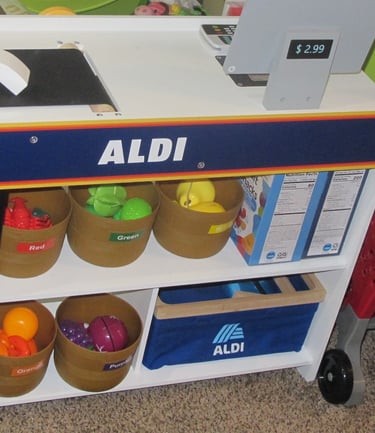Learning centers gallery
Having different play areas in our childcare room serves several important purposes that contribute to children's development, well-being, and overall learning experience. Our play areas cater to the varying interests, preferences, and developmental stages of each child. Each center provides specific materials, tools, and settings that encourage focused exploration and learning. Offering multiple play areas empowers children to make choices based on their interests and preferences. This fosters independence, autonomy, and decision-making skills as they navigate between different zones and select activities that engage them most.
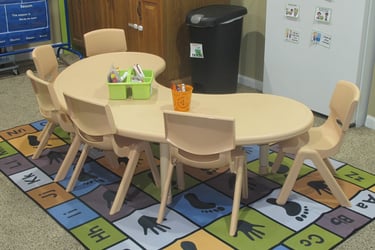

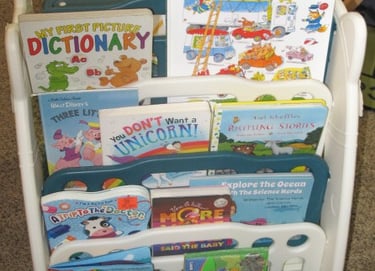

Dramatic Play
Imaginative and pretend play at daycare is crucial for cognitive, social, and emotional development. Through role-playing, they develop essential skills, explore their interests, and deepen their understanding of the world around them.
Blocks
Blocks offer endless possibilities for imaginative play in a daycare program. Manipulating and stacking blocks strengthens fine motor skills and hand-eye coordination. Working with blocks requires concentration and patience. Children learn to focus on tasks and see them through to completion, which can be valuable in various areas of their lives.
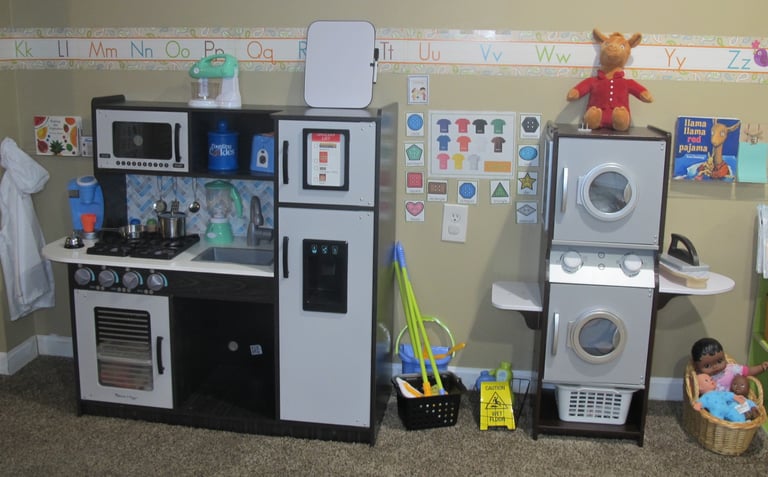

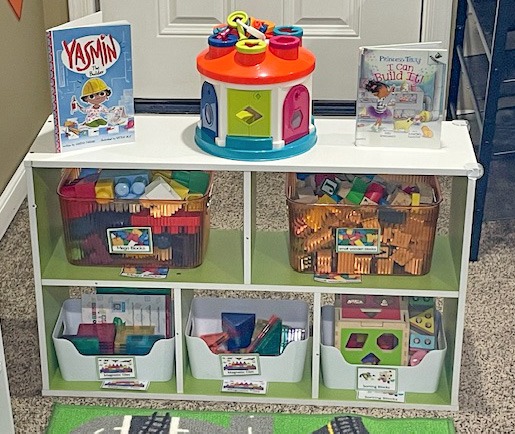

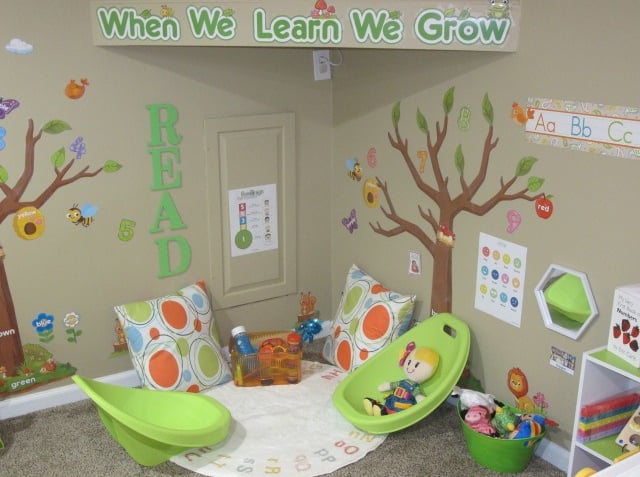

Reading/Calming Corner
Cozy reading corner designated for reading books or quiet calming activities. Provides a designated area where children can retreat to feel safe, calm, and secure while at daycare. Associating reading with comfort and relaxation fosters a love for books and reading from a young age.
Science
Integrating science learning through pretend play in a childcare setting can be a fun and effective way for children to explore scientific concepts and develop critical thinking skills. We create a dynamic environment where children can actively explore and discover the natural world, fostering a lifelong curiosity and appreciation for science.
Math
Children engage in activities that promote foundational math skills in a hands-on and interactive manner. In our grocery store area children learn counting items (e.g., fruits, baked goods), sorting and categorizing items by size or type, and using play money to understand basic concepts of addition and subtraction.
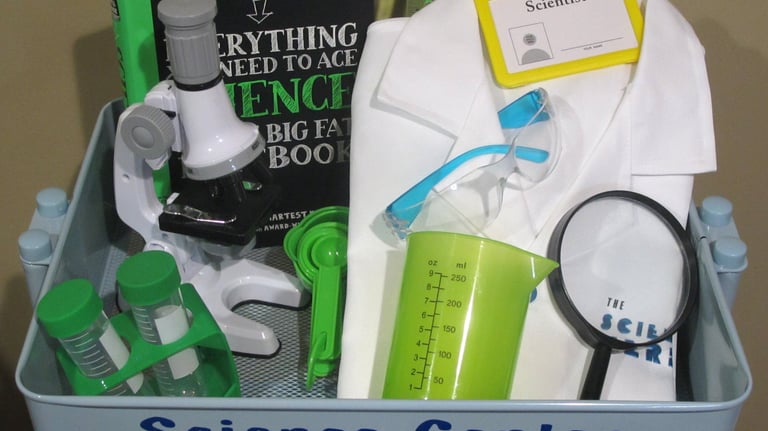

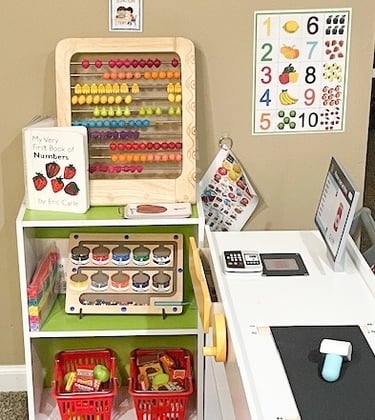

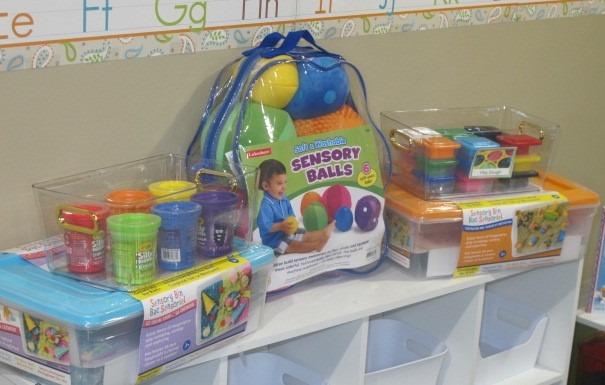

Sensory
Stimulates children's senses—touch, sight, sound, taste, and smell—in a safe and controlled environment through materials like sand, water, playdough, and sensory bins. Children explore different textures, materials, and sensations. Sensory play can have a soothing effect, helping children relax and regulate their emotions, particularly beneficial for children who may experience sensory sensitivities or anxiety.
